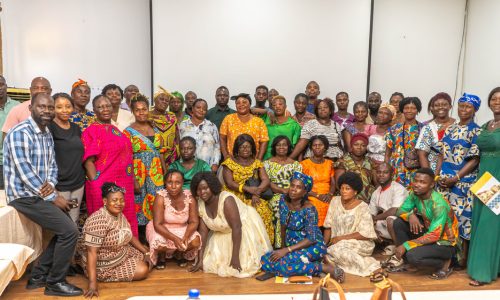A pioneering research initiative led by the Centre for Biodiversity Conservation Research (CBCR) at the University of Ghana, in partnership with York University, Canada, has commenced to examine the socio-economic and health challenges faced by female bushmeat traders in Ghana, particularly in the wake of the COVID-19 pandemic. This project, funded by the International Development Research Centre (IDRC), aims to shed light on the precarious conditions of women in the informal sector, where they are most vulnerable to external shocks such as global health crises.
Despite being a longstanding and crucial source of livelihood for many women, bushmeat trading remains largely undocumented, especially concerning the risks of zoonotic diseases and other health hazards associated with the trade. The project, through rigorous qualitative and quantitative methodologies, will generate valuable insights into how women navigate these challenges, while identifying opportunities to enhance their livelihoods and promote gender and health equity.
During the project’s inception meeting, held at the University of Ghana’s Centre for Biodiversity Conservation Research, Prof. Yaa Ntiamoa-Baidu, the lead investigator for the Ghana team, delivered an impassioned address emphasizing the intergenerational nature of bushmeat trading in Ghana. She noted that the trade, a vital source of income for many women, has been severely impacted by external health crises such as Ebola and COVID-19, leaving female traders in an increasingly precarious situation.
In his project overview, Prof. Joseph Mensah, the Canadian co-principal investigator, reiterated the urgency of the research, raising critical questions on how the pandemic has altered women’s roles in bushmeat trading, the public stigma surrounding bushmeat consumption, and the health and sanitation conditions in bushmeat markets. Prof. Mensah called for active collaboration among stakeholders to design data collection tools that will accurately capture the nuanced experiences of female traders across various markets in Ghana.
Key Highlights from the Inception Meeting:
- Participants: The meeting brought together key stakeholders, including female bushmeat traders from Kumasi and Mankessim, representatives from the Ghana Forestry Commission’s Wildlife Division, academics from the University of Ghana and York University, and officials from the Ministry of Health and Ministry of Gender. Notable participants included Prof. Erasmus Owusu from the Department of Animal Biology and Conservation Science, Dr. Sylvia Gyan from the University of Ghana, and Comfort Badu, a bushmeat market representative from Kumasi. Also present were representatives from civil society and local authorities who contribute to shaping the bushmeat trade sector.
- Socio-Economic Impacts: Female bushmeat traders in Kumasi and Mankessim detailed the economic setbacks they have faced due to the reduced bushmeat supply during the Ebola and COVID-19 era. They reported income losses, harassment by authorities, and competition from cheaper foreign bushmeat imports.
- Health and Sanitation Concerns: Traders highlighted significant gaps in market infrastructure, including the absence of proper sanitation facilities and access to healthcare, which exacerbated health risks during the pandemic. The need for improved water and hygiene systems was also underscored.
- Decline in Wildlife Species: Beyond the pandemic, traders identified environmental factors such as urbanization and illegal mining as major contributors to the declining availability of bushmeat species, threatening the sustainability of their trade.
Looking Forward:
The inception meeting concluded with a consensus on the need for greater institutional support for female bushmeat traders, including the formation of a national bushmeat traders’ association and the development of a wildlife product utilization policy. Stakeholders also pledged to support the research by facilitating date collection from key bushmeat markets across Ghana.
This research is expected to elevate awareness among policymakers significantly and contribute to the mobilization of resources aimed at improving the well-being of women engaged in the bushmeat trade. The findings will offer practical recommendations for gender-responsive policy interventions, fostering resilience within the sector and enhancing health equity for women in Ghana.


